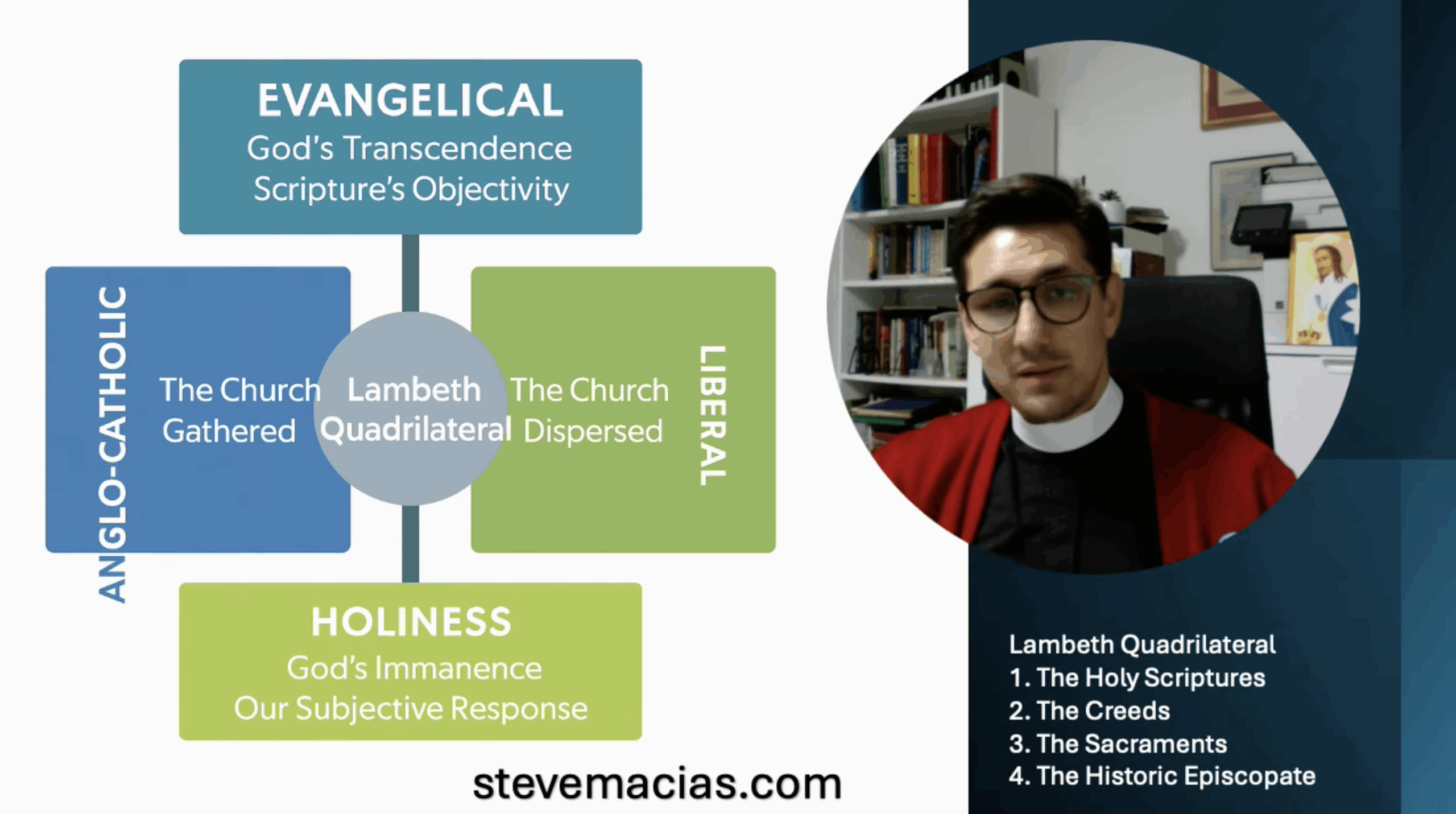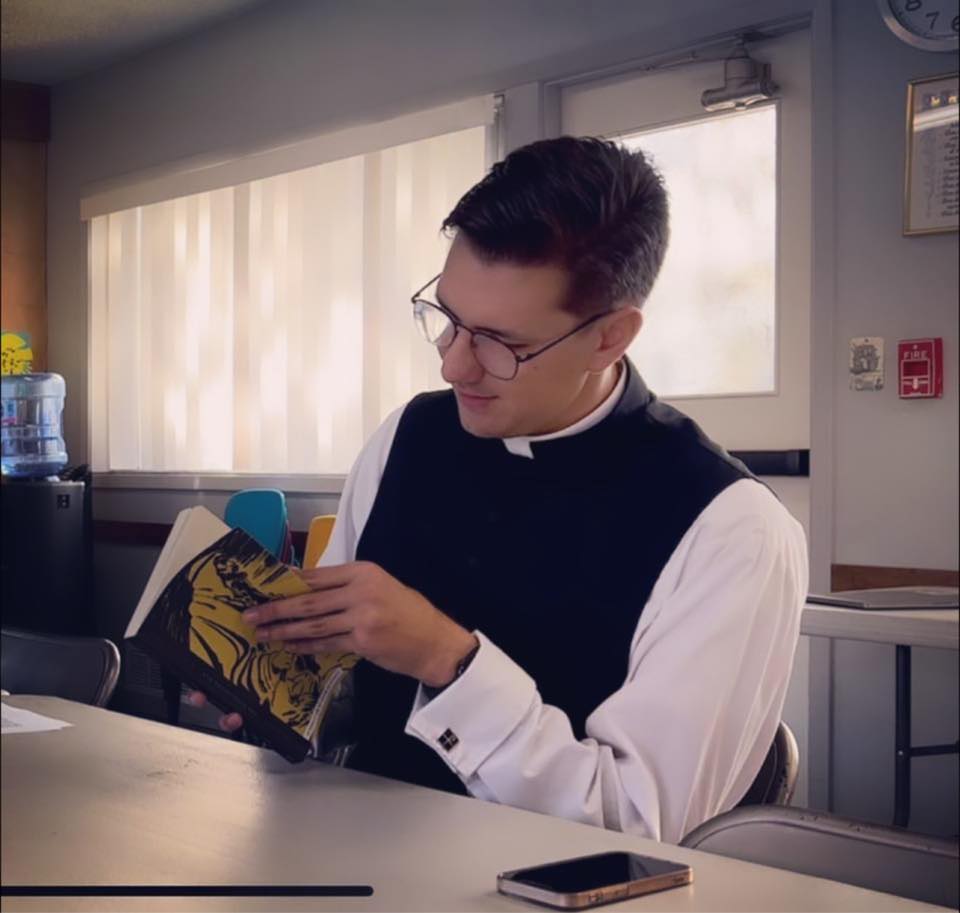For more than a century, the Lambeth Quadrilateral (1888) has been treated as the closest thing Anglicans have to a universal definition of our identity. It was intended to unify doctrine, guide ecumenical dialogue, and provide a shared foundation across global Anglicanism.
But the question remains: does it actually work?
And if not, why does Anglicanism remain so internally divided?
The Four Anglican Traditions Pull in Different Directions
The Quadrilateral is simple on the surface—Scripture, Creeds, Sacraments, and the Historic Episcopate. But Anglicans don’t agree on what those mean.
Each stream of Anglicanism emphasizes a different part:
1. Evangelicals — Scripture as the Center
Evangelicals hold the authority of Scripture as the non-negotiable heart of Anglican identity.
For them, the Quadrilateral only works insofar as it reinforces biblical authority and the plain teaching of the Gospel.
2. Anglo-Catholics — The Episcopate as the Key
Anglo-Catholics see the historic episcopate—apostolic succession, sacramental continuity, and catholic order—as the defining mark of the Church.
Their reading of the Quadrilateral leans heavily toward sacraments and ecclesial structure.
3. Liberals — Mission Over Structure
Liberal Anglicans emphasize the Church’s role in justice, inclusion, and social ethics.
For them, the Quadrilateral is a starting point for unity, not a boundary for doctrine or practice.
4. Holiness / Charismatic — Experience and Renewal
Rooted in revival and sanctification, the Holiness and charismatic stream emphasizes the lived experience of the Holy Spirit.
Why This Framework Matters
If you’ve ever wondered:
- Why Anglican churches feel so different from one another?
- Why dioceses and provinces diverge on major issues?
- Why Anglican arguments feel perpetual and cyclical?
- Why some Anglican bodies walk apart from others?
…the answer lies in how these traditions interpret the Quadrilateral and prioritize competing goods.
Understanding these frameworks brings clarity to the present Anglican moment—its hopes, fractures, and possibilities.
Watch the Full Video
Watch the full breakdown here:
Why Anglicans Can’t Agree: Evangelical, Anglo-Catholic, Liberal, Holiness — Who’s Right?



Leave a Reply